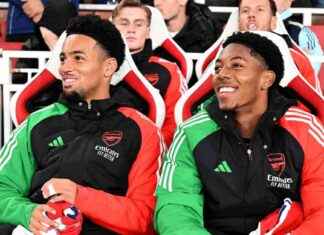Her father is Palestinian, but since her parents’ divorce, Bella Hadid is no longer part of the Muslim community she experienced as a child. In an interview, the US model reports how painful this loss is for her to this day.
Looking back on her upbringing, there’s one thing Bella Hadid misses the most: not being raised in a Muslim community. The US model revealed this in an interview with the magazine “GQ”. Accordingly, the 25-year-old was “pulled out” by her paternal Palestinian family when she was four years old.
The daughter of Palestinian real estate developer Mohamed Hadid and Dutch model Yolanda Hadid was born in Washington D.C. born where she was surrounded by her Arab family. However, after her parents’ divorce, she was “pulled out” when she moved to California in 2000 with her mother, older sister Gigi and younger brother Anwar, Hadid said. From then on she grew up without this “missing” part of herself.
In Santa Barbara, she was the only girl with Arabic roots in her class, and as a teenager she was called racist names, Hadid continues to “GQ”. “I could never see myself in anything else, so I tried to just sit back,” she says. “I’ve been missing that part of me for so long and it made me really, really sad and lonely.” She would have preferred to grow up with her father and learn what it means to “live in a Muslim culture. But that wasn’t given to me.”
Bella Hadid regularly comments on the ongoing conflict between Israel and the Palestinians. What happened to her family drove her to speak out loudly for a free Palestine, she explains. “I speak about (this stuff) for the older people who still live there and have never been able to see Palestine freely,” she tells GQ, “and for the children who can still grow up and have a nice life.”
Hadid also recently made her acting debut in the Hulu comedy Ramy. The series follows an Egyptian-American Muslim and his spiritual journey in his politically divided New Jersey neighborhood. Hadid said she immediately felt accepted on set. On the very first day, she experienced an emotional moment when the crew gave her a “Free Palestine” t-shirt. “I couldn’t handle my feelings,” she recalls. It was the first time “that I was with like-minded people. I could see myself.”







